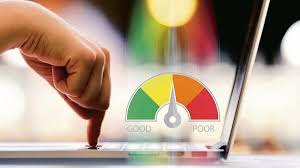Cheque Bounce & Credit Score: What You Need to Know to Protect Your Financial Health
In today’s digital-first financial world, maintaining a healthy credit score is more important than ever. Whether you’re applying for a home loan, car finance, or even a new credit card, your creditworthiness—summed up in your credit score—can determine both your eligibility and the terms offered to you. While most people associate credit scores with loan repayments or credit card bills, fewer are aware that a bounced cheque can also influence your credit standing.
But does a cheque bounce really impact your credit score directly? And if so, how can you protect yourself from long-term consequences? Let’s unpack the details and offer practical ways to safeguard your financial profile.
What Is a Cheque Bounce?
A cheque bounce, or dishonour of cheque, occurs when a bank refuses to process a cheque due to insufficient funds, mismatched signature, expired validity, or overwriting. In India, a bounced cheque is not only a financial inconvenience but also a legal offence under Section 138 of the Negotiable Instruments Act, 1881.
Penalties can include a monetary fine (up to twice the amount of the cheque), and in extreme cases, even imprisonment of up to two years.
Does a Bounced Cheque Affect Your Credit Score?
The simple answer: not always directly, but it can.
Here’s how:
- Direct Reporting to Credit Bureaus – Banks and NBFCs don’t typically report isolated cheque bounces to credit bureaus like CIBIL, Equifax, Experian or CRIF High Mark. However, if the cheque was issued for repayment of a loan or credit card dues, and it bounces, it could be treated as a default. This default is reported, and your credit score takes a hit.
- Loan and EMI Payments – If your EMI cheque for a personal loan or car loan bounces, it may lead to a missed payment record in your credit report. Just one or two such incidents can lower your credit score, especially if they happen repeatedly.
- Legal Cases – If the recipient files a legal complaint under Section 138, and it results in a civil suit or criminal case, it may appear in public record databases used by credit agencies. While this does not directly lower your score, it could influence lenders’ perception when reviewing your profile.
Impact on Creditworthiness
Even if the credit score remains temporarily unaffected, a history of bounced cheques raises red flags for lenders. It indicates poor money management, unreliable cash flow, or potential risk of default—especially if tied to loan repayments.
Additionally, frequent cheque bounces may prompt banks to downgrade your internal account profile, which could lead to restricted access to credit, reduced overdraft limits, or increased interest rates in future borrowings.
Common Reasons for Cheque Bounce in India
- Insufficient balance in the issuer’s account
- Mismatch in signature or overwriting on cheque
- Expired validity (typically 3 months from the date on cheque)
- Account closure or frozen accounts
- Stop payment instructions by issuer
While some of these may be inadvertent errors, repeated occurrences paint a poor financial picture.
How to Prevent Cheque Bounce and Credit Impact:
- Maintain Adequate Balance – Always ensure your account holds sufficient funds before issuing a cheque. It’s wise to set reminders for large cheque clearances to avoid timing issues.
- Use Digital Auto-Debits for EMIs – Switch to ECS (Electronic Clearing Service) or NACH mandates for EMI payments instead of post-dated cheques. Digital payments are more reliable and trackable.
- Monitor Loan Repayments – Regularly check your loan or credit card statements. If you’ve given post-dated cheques for repayment, ensure the account linked always has enough balance on due dates.
- Update Signature and Details – Ensure your signature matches bank records, and the cheque is free from errors. Crossed or overwritten cheques often get rejected.
- Communicate Proactively – If you anticipate an issue with clearing a cheque, inform the recipient or lender in advance and try to arrange an alternate mode of payment.
What To Do If a Cheque Bounces?
If your cheque has bounced, take immediate action:
- Reach out to the payee and try to resolve the issue with an alternative payment.
- If it was related to a loan, clear the dues immediately to avoid credit reporting.
- Avoid repeated bounces, as multiple offences can lead to legal action and lasting financial damage.
- Track your credit report regularly via CIBIL or other bureaus to ensure no negative reporting has occurred.
Conclusion
While a one-off cheque bounce may not ruin your credit score overnight, its cumulative effects and legal consequences can prove damaging. In today’s credit-driven economy, it’s crucial to stay financially disciplined, transparent, and proactive.
The best way to protect your credit profile is by adopting smarter money habits—switching to digital repayments, keeping a buffer balance, and routinely checking your credit report.
Remember, your credit score isn’t just a number—it’s your financial passport. Guard it with care.







Comments are closed